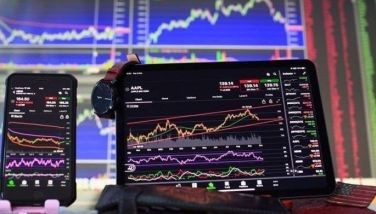World Economic Forum in Kuala Lumpur tackles ASEAN integration
MANILA, Philippines – The 25th World Economic Forum (WEF) on ASEAN which would be held in Kuala Lumpur next week would address how the newly-formed regional economic bloc can lay the foundation for progress in Southeast Asia, organizers said.
In a statement, WEF said the meeting themed “Shaping the ASEAN agenda for inclusion and growth” would also address how the region can prepare its societies for the challenges brought about by the fourth industrial revolution that is building on the gains of the third revolution.
“With its young workforce, ASEAN has strong foundations for future growth. But the global context is changing and the fourth industrial revolution will bring new challenges. The strong potential of the ASEAN region will only be realized if government and business can collectively craft appropriate responses,” said Justin Wood, head of Asia-Pacific at the WEF.
The meeting program would revolve around three topics: Driving Sustainable Growth and Social Inclusion, Mastering the Fourth Industrial Revolution and Strengthening Regional Relationships.
The forum would also launch new reports on the future of jobs in ASEAN, inclusive growth, and barriers to investment in airlines.
Key participants in the forum include Babatunde Osotimehin, executive director of United Nations Population Fund (UNFPA), Hans-Paul Bürkner, global chairman of The Boston Consulting Group and Anthony Fernandes, group CEO of Air Asia.
The Grow Asia initiative of WEF and ASEAN Secretariat, meanwhile, would hold a high-level meeting with several ministers of agriculture on the eve of the forum. It is a venue for forming linkages between nations and players in the agriculture industry with the goal of attaining sustainable agriculture development and increased food security.
WEF experts have repeatedly said some economies may be ill-equipped to respond to the fourth industrial revolution, defined as the continuation of the third industrial revolution in the tailend of the 1960s which was powered by electronics, IT and automated production.
The fourth revolution sees the expansion of the so-called cyber-physical systems that increase efficiency in daily living such as improvements in automated payments and purchase systems and app-based services.
WEF economists have said while the fourth revolution has the potential to raise global income levels, reduce the cost of doing business and improve the quality of lives of people worldwide, it also has the potential to widen the income divide and disrupt the labor market.
At present, those gaining the benefits of its emergence are those who have the access and means to afford digital technology. Further technological innovation may also replace workers.
- Latest
- Trending





























